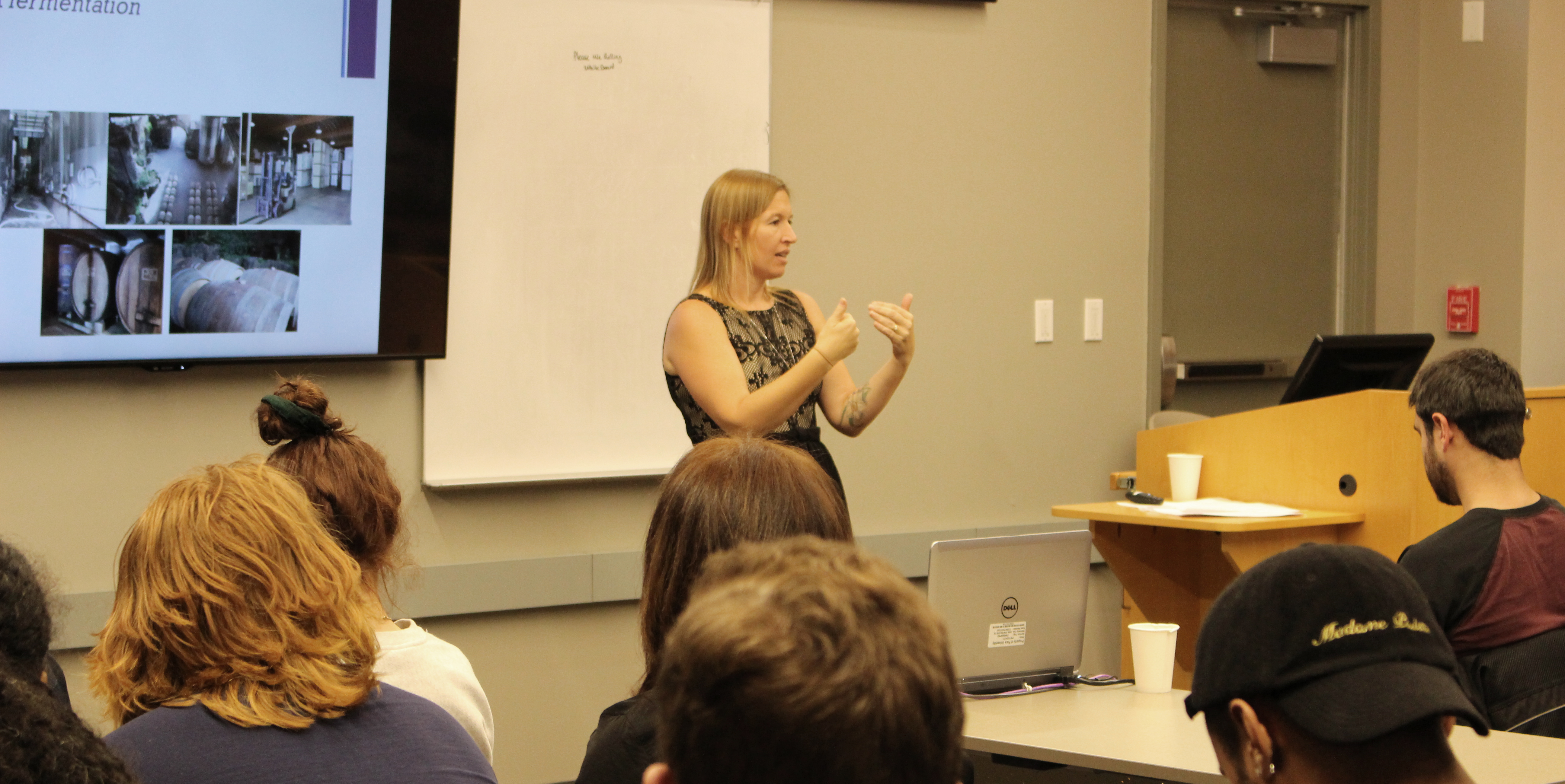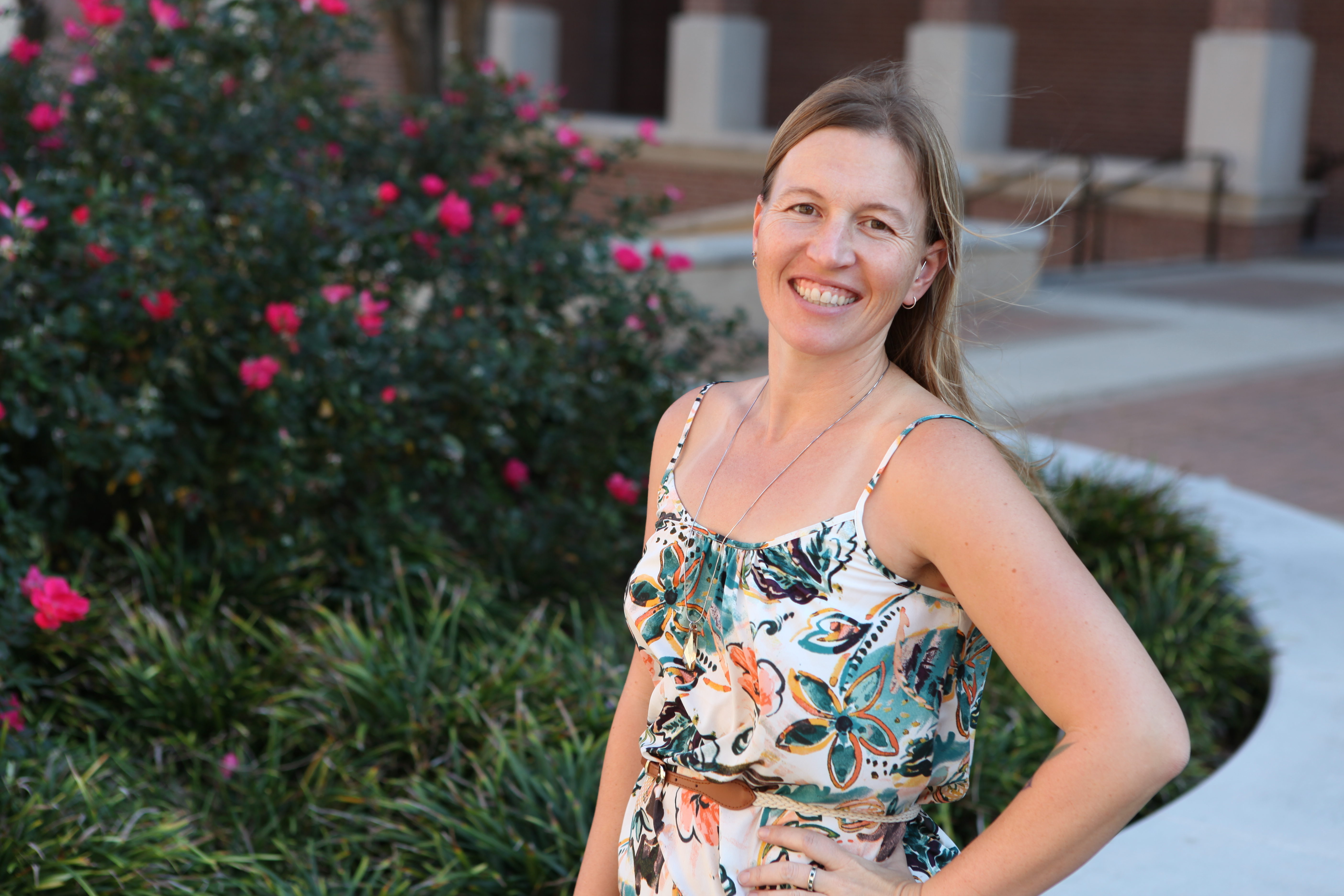On curiosity, confusion, and fermented landscapes

By Colleen C. Myles¹
People can hardly believe it when I tell them that my research—my job—is to study wine, beer, and cider. I get responses ranging from curiosity (“what does that even mean?”) to jealousy over the fact that I have found such a fun and fulfilling niche for my career. At its core, this work allows me to explore the complexity of human-environment interactions, landscape change, and political ecology with intellectual rigor and a spot of adventure (consider my fieldwork, wherein, to get the data I need, I am obligated to spend time in wineries and breweries).
Part of the excitement in this particular kind of adventure is my awareness of all of the things I do not (yet) know. Indeed, as I recently admitted to a collection of students, I love it when I am confused. I’ve found that, once you embrace a little uncertainty, finding yourself confused in the midst of your research project often means you have found a good hook — an intriguing incongruity or problem worth pursuing. It is in these moments that I know I am on the right track, even if I am not quite sure of the destination.
For me, the “hook” is tied to the concept of fermented landscapes, a framework for exploring the literal and figurative elements of landscape transformation vis-à-vis fermentation. This umbrella conceptualization is intimately concerned with the metabolisms between rural and urban places, and helps to uncover and explain environmental and cultural shifts occurring in those places. Rather than simply studying wine or beer (or whatever) in isolation, the fermented landscapes conceptualization allows me to explore the geography of politics, economics, and environments through the lens of fermentation. Think about, for example, the links between the rural and the urban, and from the local to the global, that are embodied in fermented foodways. Themes related to this work include the relationships between distant agriculture and local food, the inequities hidden in consumer landscapes, as well as the interconnections between production, consumption, and marketing. I examine these themes through a political ecology approach, which is rooted in a critical consideration of environmental and sociopolitical processes and patterns.
The kinds of topics one might research from the perspective of fermented landscapes are, as you might expect, varied. As I recently outlined in a lecture at Pace University (Pleasantville Campus), our team of collaborators have been looking into:
- the making of place in emerging or unlikely wine country locales;
- beer and its material transformation from rural to urban and global to local via “craft” production;
- apple cider, its local roots, global expansion, and complex actor-network;
- the role of kombucha and how home fermentation builds community and enhances sense of place;
- and how fermented products catalyze agricultural change and sociocultural transformation via tourism and amenity-based in-migration, demonstrating (and strengthening) physical and metaphorical metabolisms between city and country.
I will readily admit that my personal curiosity (and participation!) in foodways and fermented products made my transition into this work fairly seamless. Exploring how and why people drink and eat what they do, how other people craft it for them, and what all that means for the socio-environments we live in provides a compelling understanding of the ways our lives are interwoven with different people, places, and forms of nonhuman nature. Further, by using a political ecology framework, I endeavor to investigate the vast complexity of diverse fermentation processes across the landscape, including looking for clues about who gains and who loses in such processes. As my curiosity and, indeed, confusion about these issues continues to grow, I don’t expect this research to end any time soon. There are still many questions I would like to answer – and maybe you have a couple, too. So, the next time you raise your glass, consider for a moment about how that delicious drop came to be there!
¹On Friday, November 3, 2017, Dr. Myles gave a colloquium titled “Bubbling, burbling landscapes of ferment: Considering ‘fermented landscapes’ and how processes of fermentation drive social and environmental change in (un)expected places and ways” in Pace University’s Department of Environmental Studies and Science (ESS). Dr. Myles is an Assistant Professor in the Department of Geography at Texas State University in San Marcos, TX. She has a PhD in Geography and an MS in Community Development from the University of California, Davis. She is a rural geographer and political ecologist with specialties in land and environmental management; (ex)urbanization; (rural) sustainability and tourism; wine, beer, and cider geographies (aka “fermented landscapes”); and agriculture (urban, peri-urban, and sustainable).

Colleen C. Myles, PhD
Assistant Professor, Geography Department, Texas State University
Recent Posts

Presenting at the Annual Society of Fellows Meeting
Congratulations to Environmental Science student Hannah Engelmeyer ’25 who won awards for their paper and their presentation at the Annual Meeting of the Society of Fellows!

COMMUNICATING SCIENCE
Environmental Science Professor Anne Toomey’s recently published book, Science with Impact: How to Engage People, Change Practice, and Influence Policy, gains media attention in WCAI.
